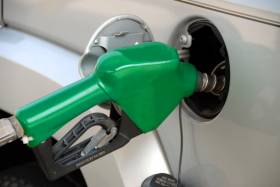Displaying items by tag: Finance Bill
Finance Bill Confirms Mineral Oil Tax Ban On Green Diesel For Private Pleasure Craft From January
As professional services giant PwC highlights in its Budget insights summary, the Finance Bill published last Thursday introduces measures to bring Ireland in line with EU law with respect to the use of marked gas oil for private pleasure navigation.
The legislation comes in the wake of a ruling by the European Court of Justice a year ago, and confirms that recreational boaters will no longer be able to fuel with green diesel in the new year and onwards.
Changes to the law had been expected following the court’s decision, with Waterways Ireland issuing a notice to masters and owners of vessels last December.
“The impact of these changes means that there will be a prohibition on the use of marked gas oil for such private pleasure navigation from 1 January 2020. Offences and penalties applicable to the misuse of marked gas oil will now extend to private pleasure navigation,” PwC writes.
The European court found that Ireland had been infringing EU law by allowing the sale of cheaper marked fuel intended for the fishing industry to power motor yachts and other leisure craft — a situation deemed to be “fundamentally incompatible” with its directives on energy taxation.
However, as our own W M Nixon pointed out five years ago, the more pressing issue for boaters around the Irish coast is the availability — or lack thereof — of quality fuel not for the exclusive use of fishing boats.
He writes: “If we wish to develop Ireland as a cruising destination for ourselves as much as overseas visitors, some new thinking is needed on the whole area of the supply of marine diesel.”






























































